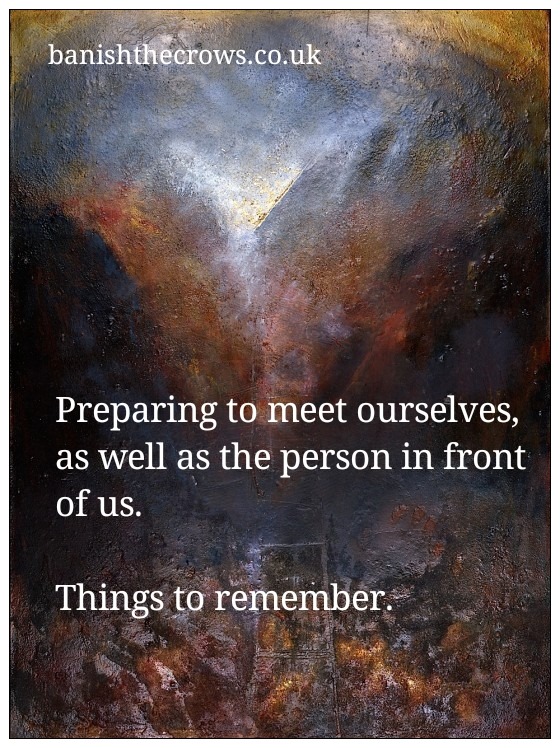
23 Nov Being prepared for therapy.
‘BEING PREPARED’. ARE THERE THINGS THAT I CAN DO TO MAKE SPEAKING ABOUT MY DISTRESS AND UNEASE – EASIER, AT MY FIRST THERAPY SESSION?
The process of therapy is a combined effort. A relationship that we are both involved in, although our two ‘roles’ of client and therapist are distinct – different. That’s not to say that I do not know what it’s like to be a client – to be in the other chair.
If you feel unable and are then not helped to take an active part in your session, you will typically get less from it – it could feel more clinical than it could or should do. For my part, I will do all that I can to help you feel at ease; to feel safe, and comfortable – to feel truly listened to, so that speaking more about things becomes a much easier prospect than you had at first imagined.
You need to feel and experience ‘trust’ in me, and our work together. I often say to clients, when I first meet them – “…you need to find a way to trust me, to trust the therapy process, and ultimately to trust yourself”.
Here are some things that you can do to help make your first and subsequent sessions as successful as possible, for you.
- Be open and honest about your thoughts, feelings, and behaviours. If you struggle at first – and this is quite normal, it WILL get easier after a few sessions.
- Be prepared. Before you get to the session, know how to describe “what’s wrong” and as best you can – how you experience your feelings about your problem. Try writing them down before hand, and if it’s not too painful to do so – trying saying them out loud, in a private space.
- Ask questions. The more you understand the experience of therapy and how the process works, the more comfortable you will be. Ask me questions about the therapy process, and to repeat anything that I say which you don’t understand. I want to help and I will always try to use language that is accessible to you and I will explain things that at first might seem complex.
- Be sure to come along to your first session with realistic expectations. Therapy is NOT a quick fix for your problem nor a ‘cure’, rather it is a process, which can be a successful approach toward resolving the difficulties that you are experiencing in your life. Strangely, it can be an incredible journey in discovering ourselves but with some pain experienced along the way
We will both need to work hard at our relationship and it will be this, together with the knowledge and skills that I am trained in and can share with you that will help our work together to be successful.
Further information can be found at:
https://www.banishthecrows.co.uk/a-good-thing-happens-here/



No Comments